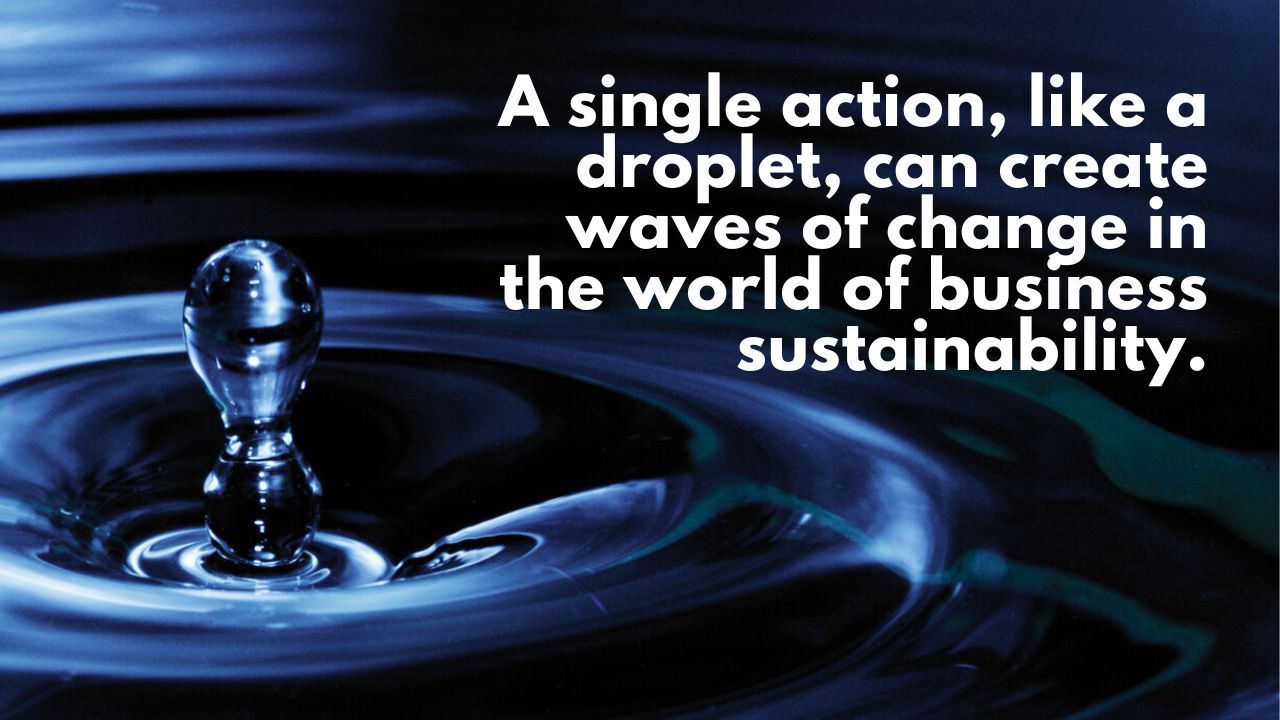From Ripples to Waves: Pioneering the Next Phase of Business Sustainability
From ripples to roaring waves, discover how businesses pioneer a green future. Dive into our latest insights and ask: How are you making your sustainability mark? 🌱 #NextPhaseSustainability #JoinTheWave

In our previous exploration of the ripple effect, we delved into the cascading influence of corporate actions on sustainability. As we transition into a new era, this article charts the course from ripples to waves, emphasizing the advanced strategies that pioneering companies are employing to shape a sustainable future.
Section 1: The Evolution of Sustainability in Business
- Phase 1: Rudimentary green practices that laid the foundation for eco-consciousness in businesses.
- Phase 2: The adoption of holistic sustainability models, where businesses began to see the broader implications of their actions.
- Phase 3: Companies becoming active champions, leading the charge towards a sustainable future and setting benchmarks for others to follow.
Section 2: Taking Action with Supplier Ecosystems
- Together for Sustainability (TfS) Initiative:
- Overview: A joint effort by multinational chemical companies, TfS is a beacon of how collaborative efforts can amplify the ripple effect, creating industry-wide waves of change.
- Impact: Since its inception, TfS has grown in influence, with many of its members achieving significant reductions in carbon emissions. The initiative's collaborative audits and assessments have set new standards in the chemical industry.
- Future Prospects: With increasing membership and global reach, TfS is poised to drive even greater sustainability impacts in the coming years.
- Schneider Electric:
- Overview: Schneider Electric, a global leader in energy management, stands out for its commitment to setting ambitious science-based targets.
- Achievements: Schneider Electric has made significant strides in reducing its carbon footprint, with initiatives spanning renewable energy adoption, waste reduction, and energy efficiency improvements.
- Innovation: The company's EcoStruxure platform, an IoT-enabled architecture, exemplifies how technology can drive sustainability by optimizing energy consumption in real-time.
- Pharmaceutical Collaboration:
- Overview: Pharmaceutical giants are joining forces to decarbonize their supply chains.
- Impact: By sharing best practices and pooling resources, these companies have achieved notable reductions in carbon emissions. Their collaborative approach serves as a model for other industries.
- Challenges & Solutions: While the pharmaceutical industry faces unique challenges, such as the need for cold storage, innovative solutions like green logistics and carbon-neutral transportation are being explored.
Section 3: Transitioning to Advanced Sustainability - A 4-Step Guide
- Set Clear Objectives: Begin by aligning sustainability goals with global benchmarks.
- Leverage Technology: Embrace cutting-edge innovations, from AI-driven energy management to blockchain for transparent supply chains.
- Foster Collaborations: Engage in partnerships with NGOs, governments, and other businesses to amplify impact.
- Measure and Adapt: Continuously monitor sustainability metrics, adapting strategies based on real-time insights.
Section 4: Top 3 Risks of Ignoring the Ripple Effect
- Supply Chain Disruptions: Any break in the chain can lead to significant operational halts.
- Reputational Damage: In today's eco-conscious world, a company's reputation is closely tied to its sustainability efforts. Ignoring the ripple effect can lead to a severe loss of trust among consumers and stakeholders.
- Regulatory Penalties: Non-compliance with sustainability norms can lead to hefty financial and operational repercussions.
Conclusion:
The transition from ripples to waves marks just the beginning of a transformative journey in business sustainability. As the landscape continues to evolve, sustainability practices must keep pace. With the next wave of sustainability on the horizon, companies that continuously innovate and adapt will not only thrive but also pave the way for a brighter, more sustainable future.

Acknowledgments & References:
This article, "From Ripples to Waves: Pioneering the Next Phase of Business Sustainability," has been informed and enriched by insights from the following sources:
- Schneider Electric (as discussed on Scope3): For their exemplary commitment to setting ambitious science-based targets and their innovative solutions in energy management.
- Together for Sustainability (TfS) Initiative: For their pioneering efforts in driving sustainability in the chemical industry.
We extend our gratitude to these organizations for their invaluable contributions to the field of business sustainability.


Comments ()